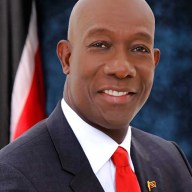The powers that be, meaning primarily the heavyweights of the West and those minion-grade nations, which for one reason or another have seen fit to join them, seem fixated on Muammar Gaddafi’s removal as a mission in which they must persevere. So that in addition to economic sanctions and an air and naval blockade, the non-stop head game of declaring the military action against Gaddafi to be oh-so-close to succeeding and France’s blustery recognition of the Libyan rebels as the country’s official authority, there has recently been the International Criminal Court’s announcement that a warrant for Gaddafi’s arrest has now been issued.
Not for the first time are we shrouding in doubt and suspicion the notion that there has been in the ferment in Libya, a clearly defined case of the Gaddafi government acting against defenseless civilians. Simply because it came in the wake of spontaneous peaceful protests in Egypt and Tunisia is no reason marauding Libyan insurgents attacking military installations to acquire weapons should be lumped in with peaceful demonstrations elsewhere in this Arab spring. Which makes the ICC’s “crimes against humanity” designation for Gaddafi’s response very much open to question.
What’s been going down in Libya has all the trappings of an insurgency, with armed rebels attempting to topple the Gaddafi regime and getting the help of outside forces to do so. Casualties from such combat are of course inevitable, including civilian deaths and injuries. A far cry this is from the firepower of armed troops being unleashed on peacefully protesting civilians.
Early in the eruptive happenings in Libya, questions were being raised about who “the rebels” were – most critically, whether there were among them al Qaeda type operatives. Such speculation may have fallen off the radar a bit as the uprising has rumbled on, but it seems quite unlikely that outside sources could make any definitive assertion of anti-Gaddafi elements being all pro-Western good guys, as some have dared to suggest. As for whether such sources didn’t exactly evoke credibility, we need only reference their track record in transmitting “intelligence” about how tight a noose has been drawn around Gaddafi’s neck and how “imminent” has been his downfall.
Foolhardy as it is to try to defend some actions of the Gaddafi regime in the past, direct military intervention by the NATO allies cannot but be labeled the selective aggression it plainly is. Never mind divers instances, over time, that might be cited of rogue behavior by regimes to which influential Western partners chose to be indifferent, how about today’s Syrian parallel with Libya, given what’s currently afoot in President Assad’s domain? Anti-government demonstrations in Syria seem much more aligned with the peaceful assembly that ignited this wave of Arab unrest. How come no talk so far of military intervention against Assad, whose heavy-handed crackdown has resulted in a spiking death toll, about which there’s been justifiable concern in the international community?
An official statement from the Chinese government, after the Syrian authorities’ hard-line stance against protest was becoming quite clear, was itself leaving no room for doubt as to where China stood on foreign meddling in the affairs of any state. The internal differences in Syria, it said, should be resolved through political dialogue. “The future of Syria should be independently decided by the Syrian people themselves, free from external interference.”
The Arab spring, fueled by spontaneous combustion when young people took to the streets demanding change, may well provide as fine an object lesson as we’ve had on the perils of foreign intervention precipitously undertaken. Cocksure in their ability to have Gaddafi reeling under the weight of infinitely superior hardware, it is among the NATO allies that there now appear to be signs of wear. Murmuring has begun about maintaining the cost of the campaign of airstrikes, drone attacks and whatever else goes into this engagement that studiously excludes ground troops. American participation, for its part, doesn’t face immediate threat of termination, but arguments between the administration and some in Congress have arisen over funding protocol. Still, with fiscal matters the object of unprecedented scrutiny these days, who knows what’s down the pike if this war of attrition with Gaddafi endures indefinitely?
What erupted and continues to unfold in these Middle East/North African countries invites conjecture about reaction in the international community to internal political cleavage in any sovereign state. Why do the Western powers react with such fierceness to a Gaddafi and with more conventional restraint to what looks to be some pretty brutal pushback from Assad in Syria? In the Saddam Hussein episode, the hair-trigger impulse was provided by George Bush, who got Tony Blair and a few other toadies to sign on to what unquestionably was unwarranted invasion. In the instant case with Libya, France’s Nicholas Sarkozy has been the self-styled instigator-in-chief, rallying support every which way for what, again, is unprovoked aggression against a sovereign nation.
Some of these major players on the world stage are unable, it seems, to affect true neutrality. Naked bias was the reason Iraq got invaded, just as naked bias prompted the rush to the so-called limited action against Gaddafi. In the last 50 years the Chinese have taught the rest of the world a thing or two; they aren’t exactly without merit as messengers here. Leave sovereign states to work out their kinks, they say. We should heed the Chinese.























